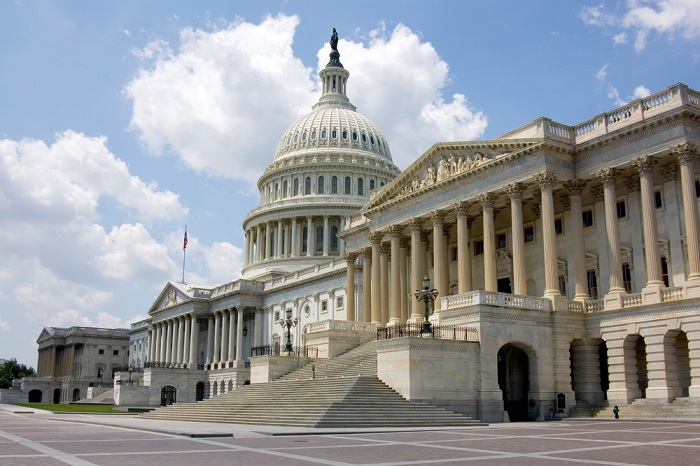 In his address before the National Press Club, Sen. Brown pitched the Butch Lewis Act as the best—and only—legislative proposal on the table.That bill would loan money to underfunded pensions at low interest rates over 30 years. (Photo: Shutterstock)
In his address before the National Press Club, Sen. Brown pitched the Butch Lewis Act as the best—and only—legislative proposal on the table.That bill would loan money to underfunded pensions at low interest rates over 30 years. (Photo: Shutterstock)
Sen. Sherrod Brown, D-OH, said President Trump would likely sign legislation rescuing multiemployer plans facing insolvency, if a joint select bipartisan committee in Congress can move a bill to full vote in the House and Senate.
"We assume that if we do this right, the president will sign the bill," Sen. Brown told an audience at the National Press Club last week.
Recommended For You
In February, the Bipartisan Budget Act of 2018 created the joint select bipartisan committee on multiemployer pension reform.
The Committee is comprised of four members from each party in both chambers of Congress, and has a November 30 deadline for crafting legislation that would address the impending insolvency of more than 100 multiemployer plans that fund the retirement of more than 1 million union workers across the country.
Five members of each party will be needed to vote the bill out of the select committee. It would then move to an up and down vote in both chambers of Congress.
In his address before the National Press Club, Sen. Brown pitched the Butch Lewis Act as the best—and only—legislative proposal on the table.
That bill would loan money to underfunded pensions at low interest rates over 30 years. Funds would be raised through treasuries sold to institutional investors. Pensions would not be cut.
Brown said the bill would cost taxpayers a "relatively minimal" amount, whereas the cost of inaction would likely result in the need to bail out the Pension Benefit Guaranty Corp., at a cost of billions to taxpayers.
"This is not asking taxpayers to do more," Brown said of the Butch Lewis Act, which has 14 Republican co-sponsors in the House. "We want to do this in a way that ultimately saves taxpayers money."
The U.S. Chamber of Commerce has said it supports a rescue package for collectively bargained pensions, citing the macro-economic impact on local economies if the pensions fail and the threat of bankruptcies among smaller employers with high pension liabilities.
The Chamber says multiemployer pensions generated $2.2 trillion in economic activity in 2015. Pensioners paid $158 billion in federal taxes and $82 billion in state and local taxes.
The joint committee, which Brown co-chairs with Sen. Orin Hatch, R-UT, has held one hearing, and is slated to hold five more. The next scheduled hearing is April 18.
During the first hearing, Sen. Rob Portman, R-OH, raised concerns that Democrats on the committee had already congealed around the Butch Lewis Act as the centerpiece for a rescue package.
"I'm a little concerned with how we've started off," said Sen. Portman during the hearing in March. "We have to be sincere about not treating this like another committee. If we divide along party lines, we might as well not waste our time. We have to figure out how to break through partisan lines."
But Brown dismissed those concerns. "We are not going to make this partisan. Rob (Portman) knows that," he said at the NPC.
The Congressional Budget Office has not yet scored the Butch Lewis Act. CBO assesses the cost of legislation after bills advance out of committee.
But Brown said other actuaries have validated the bill. The loans that the plans would receive would be paid back, Brown said, given their low interest rates relative to investment returns and economic growth over time.
© Touchpoint Markets, All Rights Reserved. Request academic re-use from www.copyright.com. All other uses, submit a request to [email protected]. For more inforrmation visit Asset & Logo Licensing.







